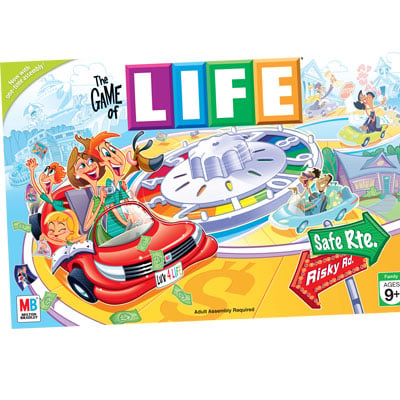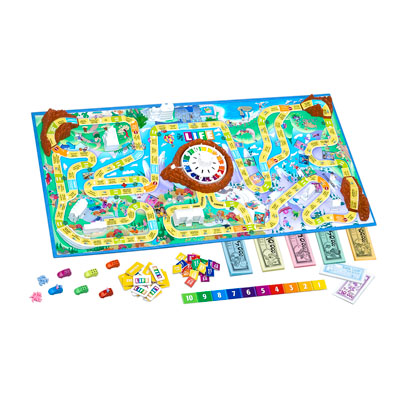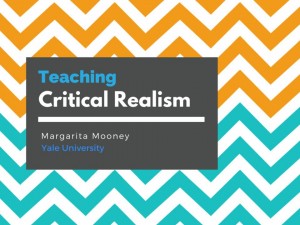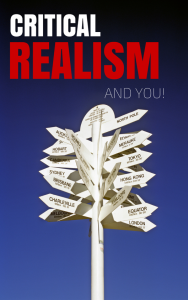 Recently, while on vacation at the beach with my family, I encountered my sister-in-law, niece and nephew in the middle of the Game of Life.” I cracked up when I found out that my 9-year old nephew was a doctor living in a mansion who had made extra money by finding buried treasure and suing someone, but my 7-year old niece was a hairdresser who lived in a double-wide trailer, had a large family (including several grandchildren) but practically no money to retire on. What inequalities, I thought!
Recently, while on vacation at the beach with my family, I encountered my sister-in-law, niece and nephew in the middle of the Game of Life.” I cracked up when I found out that my 9-year old nephew was a doctor living in a mansion who had made extra money by finding buried treasure and suing someone, but my 7-year old niece was a hairdresser who lived in a double-wide trailer, had a large family (including several grandchildren) but practically no money to retire on. What inequalities, I thought!
Throughout the week, as we played the Game of Life several more times and I realized that the Game of Life must have been designed by a sociologist (or at least someone who majored in sociology in college). Why? Because we teach our students that choices you make early in the Game of Life shape the rest of your life. To illustrate, in the Game of Life the first thing each player does is choose either to start a career (and start earning money) or go to college (you delay earning money now but will earn more later). After a few rounds of the Game of Life, my nephew exclaimed, “Gee if I go to college I finish the Game of Life with a lot more money!”
Here is how Hasbro advertises the Game of Life:
“Where will your choices take you? You made it through high school, so now what’s next? Go to college or start a career -it’s your choice. Think the family life is for you? Take that path and see how many kids you’ll have! Will you venture down the risky road where fortunes can be won… and lost? Do whatever it takes to retire in style with the most wealth at the end of the game. Spin the wheel of fate and take a drive along the twisting roads families have enjoyed for more than 50 years! Do good deeds as you go through the game to earn Life Tiles and more money down the road!”
 The Game of Life is also very sociological because it has spots on the game board where everyone must stop no matter what they roll. Therefore, all players must go through several key life course transitions: everyone must get married, buy a house, and have at least one child.
The Game of Life is also very sociological because it has spots on the game board where everyone must stop no matter what they roll. Therefore, all players must go through several key life course transitions: everyone must get married, buy a house, and have at least one child.
In real life, however, kids don’t always come before marriage, people with jobs still struggle to buy a home, and some people won’t every marry or have kids. Interestingly, despite the fact that half of marriages in real life end in divorce, no one in the Game of Life ever gets divorced. The Game of Life doesn’t tell us what happens to people who follow these different tracks, but sociologists will tell you that real life is much messier than the Game of Life.
The Game of Life does a good job of countering much of the individualist America ethos that says everyone gets what they deserve or what they work for. In the Game of Life, as in real life, your long-term economic position depends only partly on choices you make, but depends more heavily on random rolls of the dice. For example, if you roll the dice well, you find buried treasure worth $100,000. If you roll the dice poorly, you have a major car accident and lose $50,000. As my 9-year old nephew said, “You know, this game of life has a lot of chance!” Well put.
The Game of Life makes certain aspects of real life quite funny. During one game, my brother got a career as a mechanic. When his roll of the dice landed him on the block that says “job relocation, spend $20,000,” he said, “I only make $30,000 a year as a mechanic and I have to spend $20,000 to relocate?!?” I told him he was an airplane mechanic who worked for Boeing; they had closed their plant in Washington State and relocated to South Carolina. That’s a big, costly move.
Much like in real life, as I played the game of Life again and again, I kept thinking I could beat the game. That is, if I did things right, I could get the job I wanted, the kind of house I wanted, and accrue lots of money for a nice retirement. Sadly, no matter how many times I played, my life came up short.
No one at the table was really happy with their Game of Life. In one Game of Life, my 7-year old niece decided she wanted a large family. With each roll of the dice, she begged the Game of Life, “I want kids. More kids! Grandkids! Give me kids!!!!!!” In real life, many people want kids, or want more kids, but are just as frustrated as my niece. Finishing her Game of Life with just one child and quite poor, my 7-year old niece pouted on her bed said, “This game of life is so unfair!! The person with the most money always wins at the end! I just want kids!”
What does the Game of Life teach our children us about real life? That you are not in control of your destiny, that having more than others makes you feel good about yourself, and that all you have can be lost in one day due to a lawsuit or car accident.
Is that what I want to teach our children about real life? Although, as a sociologist, I know that Game of Life has much truth in it, I also want to teach children and my students to be prepared for the real life—you may not get what you want, but you can make the best with what you have.
As I have written before, it is sometimes in not “having it all” that we come to see how much we do have. The Game of Life doesn’t tell you what to value, but if you know what you value in real life, you will be satisfied with what you have. Real life is messy and much is out of your control. So before rolling the dice, ask yourself: what do you value in life?










